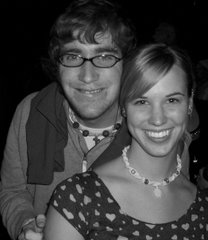
The title to this blog was the quote on the back of a t-shirt I had from my highschool cross-country ski team. I am writing this blog to help you understand why 1) Cross country skiing is, well, the best sport ever and 2) why Cross country skiing is WAY better than downhill skiing. I have been skiing since I was about 5 years old. It is, in my book, the absolute best sport ever. First of all, Cross country skiing is a fabulous cardiovascular workout. Usually races are 5k (3 miles) long, so it takes a lot of endurance. Even if you are just skiing for fun, trails go on forever so you can't really start and then stop 10 minutes later...you have to finish. Unless you want to wimp out and turn around, but then you will crash into other skiers and that is never good. To ski you have to be able to tolerate very cold weather and that alone takes a lot of strength. I mean, honestly, what is better than wearing spandex in the middle of winter? Cross country skiing puts to work every part of your body. Legs, arms, abs, they all get an amazing workout. It is also extremely relaxing if you are doing it for recreation. You get to enjoy being in the middle of a winter wonderland, just you and nature. Now for my second point....cross country skiing is far superior to downhill skiing. In downhill skiing you are only on the slope for maybe 20 seconds in a race (downhill). On the other hand, in cross country skiing, you must be able to go up AND down hills for 3 miles or even more depending on the race. Cross country skiers don't have gravity to help them out. Downhill skiers seem to have that an attitude of, "I'm a risk taker, I can fly down a hill really fast and put my life in danger". Cross country skiers aren't trying to prove how brave they are, they are proving how skilled and strong they are. I recommend that everyone tries cross country skiing on a warm, sunny day where you can go out and meditate in nature!
